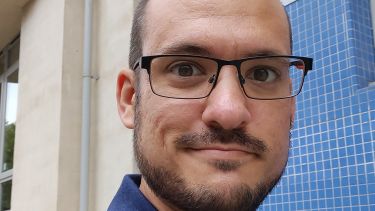The lectures were given by world experts on their respective fields, and the support I got during my research project was fantastic.

Originally from the town of Seville, Spain, Alejandro had already lived a third of his life in the UK. Alejandro wasn’t able to find a neuroscience masters that was so well-focused on the translation between basic science and clinical advancements, which is what made him choose to study in Sheffield.
He explains, “When I was younger, I wanted to dedicate my life to research in neurological disorders from the molecular point of view, and that’s why I studied an undergraduate in Biochemistry and then the MSc in Translational Neuroscience, and eventually my PhD in neuroscience.
The lectures during the course were given by world-leading experts in their respective fields. I really appreciated the support I got during the research project, and the broad availability of student societies I could join at the Students’ Union.
Alejandro Lorente Pons
MSc Translational Neuroscience graduate
“I originally wanted to become a clinical doctor because I thought that was the only pathway I could follow to research diseases. I later learned that there were career options other than medicine to study how the human body works and after getting in a research environment during my PhD,as well as learning the details of how research works and what an academic researcher’s daily life is like, I decided to take a different career route.”
Alejandro intends to follow an academic teaching pathway in Higher Education, in the fields of biomedical sciences and neuroscience. He adds, “I did enjoy research, but it is teaching that I am the most passionate about. I’ve just left a job as a Teaching Associate in Biochemistry at the University of Bristol, to start my role as a Teaching Fellow in Biomedical Sciences at the University of Salford, and I will look for ways to progress into a lectureship within the university.
“When I meet third-year students who want to begin an MSc or a PhD, I let them know about all the effort that it takes to complete a thesis.. I also tell them that even though some researchers do stay in the lab until late every day and weekends, it is also important to take care of yourself and enjoy free time after work to look after their mental health and build relationships with people outside of the course; getting involved in student societies helped me a lot with this!”

Masters study discovery afternoon
See where a Sheffield masters could take you with our on-campus event. Get expert advice, take a campus tour and chat to current students.

